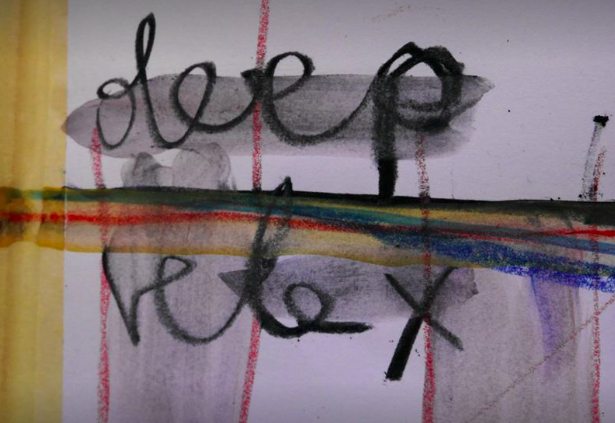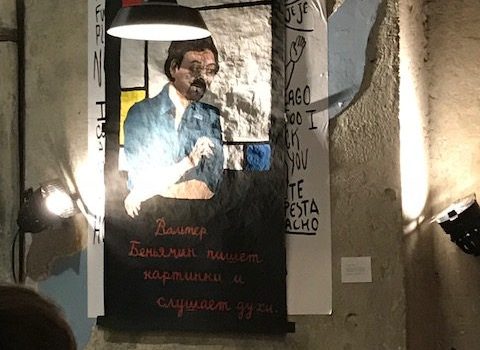Artur Żmijewski “How to teach Art?” – Workshop (Mai-June)
Short description of the Project by Artur Żmijewski
Planned essay will be titled „How to Teach Art”. I expect it to be a manual explaining on the certain way how to teach art. There are of course different strategies how to educate people – I’d like to present my subjective opinion about it.
My idea is based on the „process of the alchemist” – I will use metaphor of the alchemist to create education strategy.
The goal of the alchemist is to create active formula / object which has certain ability to transform material / substantial reality. In the alchemy it’s a philosophical stone which creates perfect substances out of ordinary ones.
This is good metaphor of the art piece – which should be exactly this active / magic formula able to transform emotions or thoughts of the viewer. In a wider sense it could transform social reality or even politics.
Using the metaphor of the „process of the alchemist” would be able to elevate mysterious process of making art on to much more rational level. There are 3 phases of the process:
- Nigredo – artist / alchemist initiates the process of making art; it’s painful beginning full of depression and loneliness – the next step is still unknown; dark and wet material surrounds the alchemist who thinks / meditates how to transform it into an active / magic transformative formula.
- Rubedo – artist / alchemist „found” a way and is „cooking” the formula – in the „owen”; depression starts to disappear – alchemist follows the intuition.
- Albedo – formula is ready and the artist / alchemist became healthy again; dar and wet materia is now transformed into a bright and dry; the art piece is ready and active; artist / alchemist went through the process and found herself / himself again.
I’d like to teach students this psychological background of artistic activity and let them go through the „process of the alchemist” when it is supervised. The „process of the alchemist” is also the way of looking for the answer. Answer is the equivalent of the art work.
There is a complementary path of education which I’d like to test.
It’s based on much more rational process – focused on the historical modifications of the human perception and tools built to represent reality.
It is also divided on 3 parts:
- Early movies and early cameras: 16mm and the very moment when the still image became moving image – cinema itself was designed for human perception.
- „Catastrophe” of the representation: low quality VHS and SVHS cameras – cheap cameras but without good quality – human perception was „suffering” because of no-perfect representation of reality.
- Big comeback of the artificial image high quality: 4K cameras for professionals and 4K cameras for amateurs – excess of the artificial image quality.
This path would be based on the using of the old film equipment and research around the perception. Students could understand evolution of the human perception as historical process – again in 3 steps:
- the end of the 19’th century and the beginning of the cinema.
- 80’ and 90’ of the 20’th century and the „catastrophe” of reality’s representation – video tools and low quality of the image.
III. the beginning of the 21’st century and development of perfect image: 2K, 4K and so on.
Quick journey through decades could offer students deeper understanding of the human wish to represent reality. The content of the exercises could be designed in contrary to the rational explanation of the certain cinema tool – and could be focused on intuitive use of certain camera.
All exercises would be discussed and developed together with students – and later on used as examples to illustrate the essay „How to Teach Art”. Both methods could be „tested” using certain exercises.
I would propose to extend the essay with interviews made with a very few active and experienced teachers. For example with Wiktor Gutt from Warsaw Academy of Fine Arts.
Theorie development
__________
http://www.zkk.uzh.ch/de/Gastprofessuren/Artur-Żmijewski-.html
Artur Żmijewski is a guest of PhD programm »Epistemologien ästhetischer Praktiken« (ZHdK, UZH, ETH) in cooperation with Zentrum Künste und Kulturtheorie (ZKK), ERC-Projekt »Performance Art in Eastern Europe«, SNF-project »Exhibiting Film« (UZH), Seminar for Filmwissenschaft UZH, Slavic Seminar UZH and Institut for Theory ZHdK.
»Artur Żmijewski. Kunst als Alibi«, herausgegeben von Sandra Frimmel, Fabienne Liptay, Dorota Sajewska und Sylvia Sasse
270 Seiten, Broschur, erschienen 2017 in der ZKK:Reihe »Denkt Kunst« bei Diaphanes.
https://www.diaphanes.net/titel/kunst-als-alibi-4165







You must be logged in to post a comment.